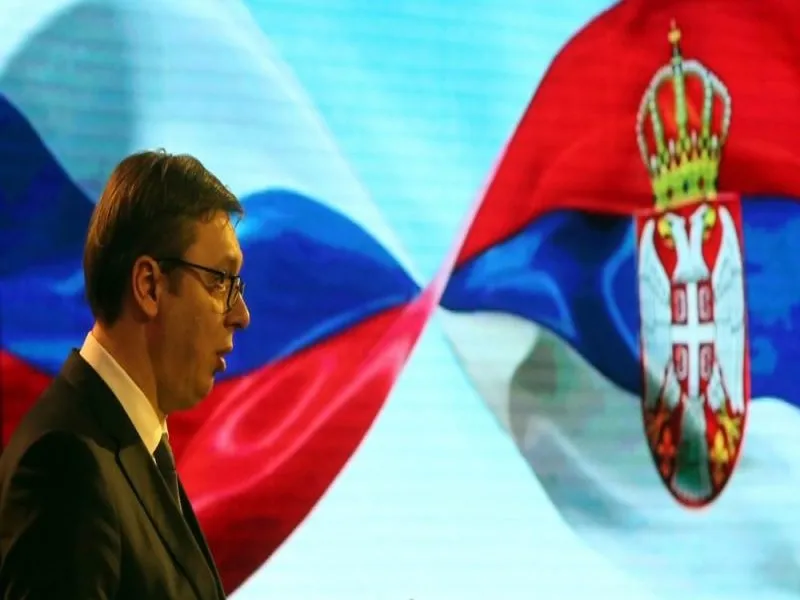
It remains to be seen whether Serbia will keep its word and no longer indirectly arm Ukraine.
Serbia surprised some observers after its President and Prime Minister assured Russia that it’ll no longer indirectly arm Ukraine, which came after Russia’s Foreign Spy Service (SVR) said that Serbia hasn’t discontinued this trade that it first raised awareness about in late May. Serbia’s latest smooth-talking towards Russia is politically self-serving, however, since it preceded last weekend’s attempt to revive the protest movement which Moscow consistently assessed to be a Western-backed Color Revolution.
It was explained last summer that “The Serbian Government Is Inadvertently Responsible For The Latest Color Revolution Intrigue”, yet Russia still maintained its aforementioned position, with Lavrov implicitly reaffirming it after last weekend’s unrest in Belgrade. Even so, SVR’s two announcements about Serbia’s indirect arming of Ukraine in just as many months might have made the government speculate that Russia might play a role in the then-upcoming protests or at least promote them in its media ecosystem.
Therefore, the decision might have been made to preempt that by assuring Russia that it’ll discontinue this trade, ergo the timing of these declarations by its President and Prime Minister. The Prime Minister also pledged not to join the West’s anti-Russian sanctions nor sign any anti-Russian declarations. Going back on the first would harm the Serbian economy, however, while doing the same with the second wouldn’t likely entail any harm since none followed it voting against Russia on Ukraine at the UNGA.
Member of the Federation Council Committee on Foreign Affairs Natalia Nikonorova is skeptical: “There’s no sitting on the fence in this situation. The Serbian politician will have to make a concrete choice. Only actions, not words, will show what that choice is. With regard to the Russian-Serbian alliance, we are referring to genuine bonds that have united our peoples for decades. I think the publication of the Russian SVR investigation results could be a revelation for the wider Serbian audience.”
The signal being sent is that Russia is taking Serbia’s indirect arming of Ukraine very seriously, much more so than others’ similar activities like Turkiye’s, since it represents a betrayal of their historical friendship. This observation accounts for what pro-government Serbian critics have described as Russia’s alleged “double standards” towards this issue. From Russia’s perspective, it’s expected but still regrettable that Western-aligned countries arm Ukraine, but unacceptable for close Russian partners.
The symbolism of Russia doing nothing while a close partner like Serbia arms Ukraine could erode its soft power while also dangerously facilitating Western efforts to pressure others to do the same by pointing to the Serbian precedent of there being no meaningful consequences for such perfidy. Serbia knows how seriously Russia is taking issue and why, hence its speculative concerns that Russia might have prepared to play a role in the then-upcoming protests or at least promoted them in its media ecosystem.
Its top officials’ politically self-serving smooth-talking averted those scenarios, at least in their minds, but it remains to be seen whether they’ll keep their word about all they promised. If they go back on it, Russia probably wouldn’t involve itself in the same unrest that its own officials have assessed to be a Western-backed Color Revolution (especially since that could be exploited by Serbia to decisively pivot to the West), but some asymmetrical response might follow. Hopefully it won’t come to that though.
